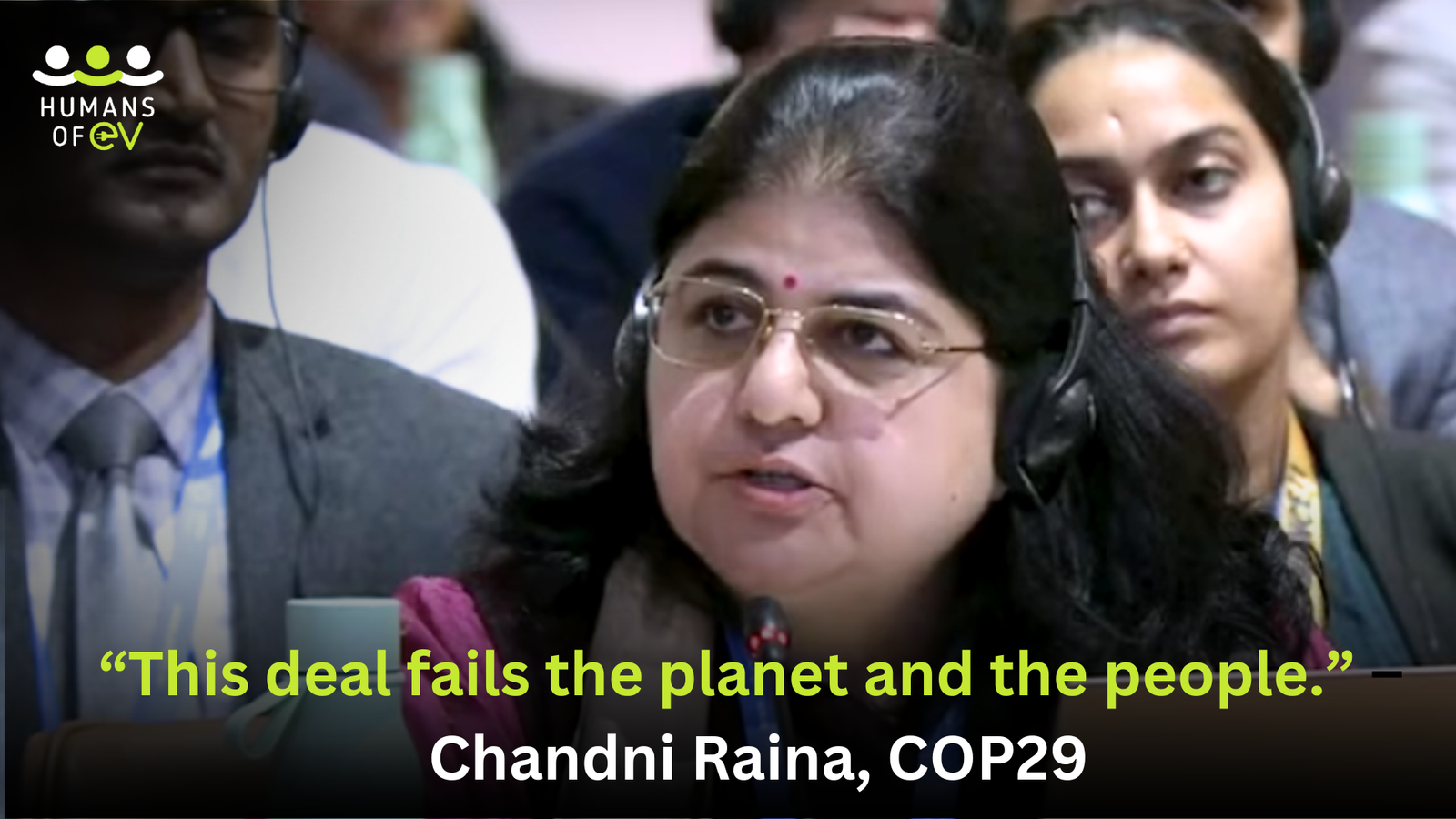
November 28, 2024 | Global Climate Policy
India Pushes Back on Inadequate Climate Finance Deal
At the COP29 summit, India firmly rejected the newly proposed climate finance package, which aims to mobilize $300 billion annually by 2035 for the Global South. India, alongside other developing nations, had been advocating for $1.3 trillion to address climate challenges effectively. India’s representative, Chandni Raina, described the proposed amount as “abysmally poor” and criticized the unfair negotiation process during the deal’s adoption.
Key Issues with the Proposed Climate Finance Deal
- Inadequate Funding: The $300 billion pledge falls far short of the $1.3 trillion demand, limiting developing nations’ ability to combat climate change and adopt necessary technologies like EVs.
- Historical Failures: The new package replaces the $100 billion pledge from 2009, which was primarily met through loans rather than grants, raising concerns over fairness and equity.
- CBDR Principles Ignored: India stressed that the deal undermines the Common but Differentiated Responsibilities (CBDR) principle, crucial for equitable climate action.
Implications for India’s Electric Vehicle (EV) Sector
1. EV Infrastructure Development at Risk
The rejected climate finance deal highlights a critical gap in funding for scaling up EV infrastructure. India needs substantial investment to build a nationwide network of charging stations and battery facilities to support its EV goals.
2. E-Mobility Investment Challenges
Programs like the India E-Mobility Financing Program, backed by the Green Climate Fund, aim to ease EV adoption through tailored financing. However, without robust international support, expanding these initiatives may be challenging.
3. Slower Decarbonization of Transportation
Transportation accounts for 12-13% of India’s greenhouse gas emissions. Insufficient climate finance delays efforts to electrify the sector, impeding India’s decarbonization targets.
4. Increased Reliance on Private Sector
With limited public funding, private sector investments, like the IFC’s partnership with Bajaj Finance for EV financing, will play a bigger role. However, private funding often lacks the scale and consistency needed for nationwide adoption.
5. Barriers to EV Adoption Persist
High upfront costs and limited financing options remain obstacles for potential EV buyers. The absence of comprehensive public funding could exacerbate these challenges, slowing EV adoption rates.
India’s Call for Collaboration and Policy Reform
India’s rejection of the deal underscores the urgent need for equitable and substantial climate finance frameworks. A collaborative approach involving international bodies, public sector investments, and private capital mobilization is essential. Clear domestic policies supporting EV adoption and infrastructure development will also be critical in bridging funding gaps.



